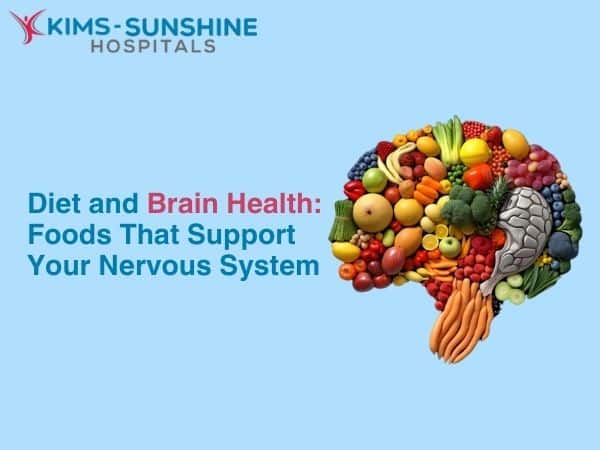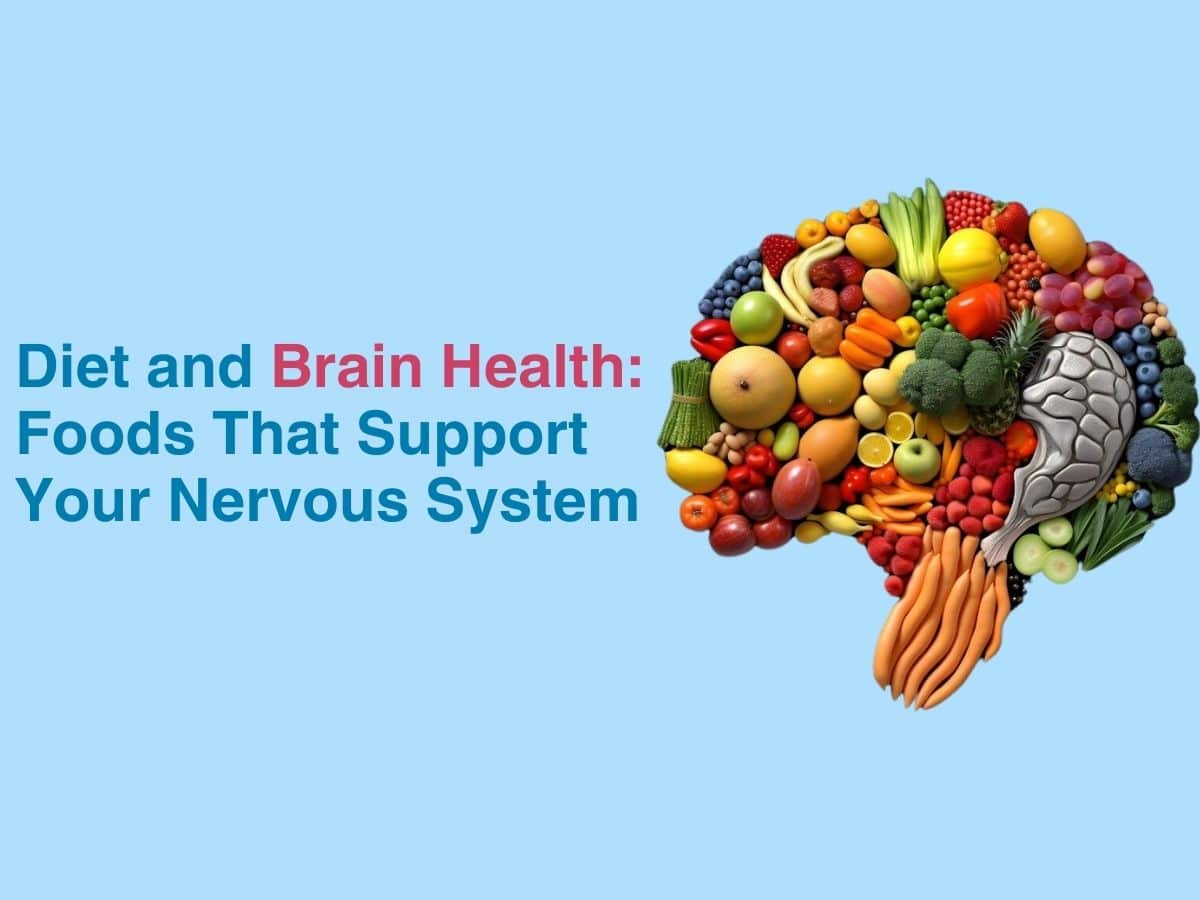
Diet and Brain Health: Foods that Support your Nervous System

The brain does so much everyday- literally tells you when to wake up, does all the thinking and routine processing of every thought that you may have, gives you signals for hunger, thirst, sleep, regulates emotions and feelings, helps you work systematically to achieve those deadlines and goals at work or school and is also great at learning new stuff when needed. Ofcourse, let’s not forget how the brain tends to remember information we deem important – i.e. memory formation and retention. Forgetting stuff is also not a very bad thing either, as a healthy brain needs to learn to let go of useless information and store what is actually needed. Since the brain does everything we know is necessary for us to survive, let us learn more about all the foods we can eat to help the brain function well.
How Diet Affects Brain Health and Cognitive Function
You are literally what you eat- yes. This saying is especially apt for the brain. The brain has different kinds of highly specialised cells like the glia, neurons, blood vessels and requires a lot of energy to run. The brain normally prefers good quality carbohydrates as its primary fuel source. But indiscriminately eating a lot of sugar is NOT going to help in any way, as these can cause unnecessary inflammation in the brain. The different cells need specific vitamins and minerals to make the right amounts of molecules called neurotransmitters which can be thought of as chemical messengers which fulfil multiple functions for us. If you eat right, then you help the cells in the brain work in symphony while also ensuring that there is effective communication with the rest of the body too.
Superfoods for Enhancing Brain Power and Focus
If you don’t eat well especially during periods of great brain development, you risk cognitive deficiencies or decline. This means that children really need a lot of coaxing to build good dietary habits- it is not just to appease parents and to get kids to finish their plate. You should be able to teach them why you are asking them to eat a particular food item. Some commonly ignored superfoods for kids and their even hungrier brains include the following
- Fresh greens like fenugreek, drumstick leaves, amaranth, spinach- they are all rich in lutein which is a great antioxidant.
- Nuts like walnuts, peanuts, almonds are all chock full of good fats and Vitamin E which are protective in function
- Berries- like blueberries, strawberries, gooseberries are all amazing sources of fresh Vitamin C and minerals- which are again anti-inflammatory in nature while also keeping the circulatory system working well.
- Eggs are also called complete foods- since they contain protein, fats, vitamins and minerals . Eat the choline rich yolk as it is great for the brain. Egg whites are full of protein which will help with growth and repair in the body.
- Turmeric, manjal or haldi- this golden hued spice is taken for granted here. We tend to sprinkle a little in almost every dish and the curcumin in it gets to work quickly by relieving your brain and body of any inflammation.
- All dals – moong, masoor, channa, toor, karamani, black eyed peas etc.- they are all rich in iron which means better oxygen delivery to the brain.
- Mushrooms are full of minerals like selenium, magnesium, zinc and can even make their own Vitamin D if you keep them out in the sun for a while before cooking them.
- Dairy products like paneer, curd, milk, butter, ghee- they are all super full of Vitamin B derivatives which help ensure that the brain has a steady supply of energy.
- Ghee, coconut oil, sesame oil, mustard oil- are all excellent sources of fats that contain Vitamin E too.
- Water is often ignored but is super crucial for brain function.
All of these are foods to prevent cognitive decline and support brain health in the long run.
Conclusion
Incorporating fresh fruits and colourful veggies everyday has shown to help retain your cognitive abilities as you grow older, while also protecting your brain from depression or anxiety causing signals. You should try to eat different kinds of foods and not just prefer a particular group of foods. You should also understand that diet alone is not going to be a one-stop solution. You should get some exercise, engage your brain in interesting activities, try to learn something new periodically and remember to get help when you think you aren’t doing so well. There is no need to eat fancy stuff which may be expensive or impractical. A typical Indian kitchen is normally stuffed with everything you’d ever require and should be able to support healthy eating habits for a strong nervous system.
Frequently Asked Questions
What are the best foods for improving brain health?
What nutrients are essential for a healthy brain?
Are superfoods effective in improving brain function?
Can certain foods help reduce stress and improve brain health?
Are there specific foods that boost memory and concentration?

Dr. CH. Gopal
MBBS, MD (NIMS), DM (Osmania)
Sr. Consultant Neuro Physician






